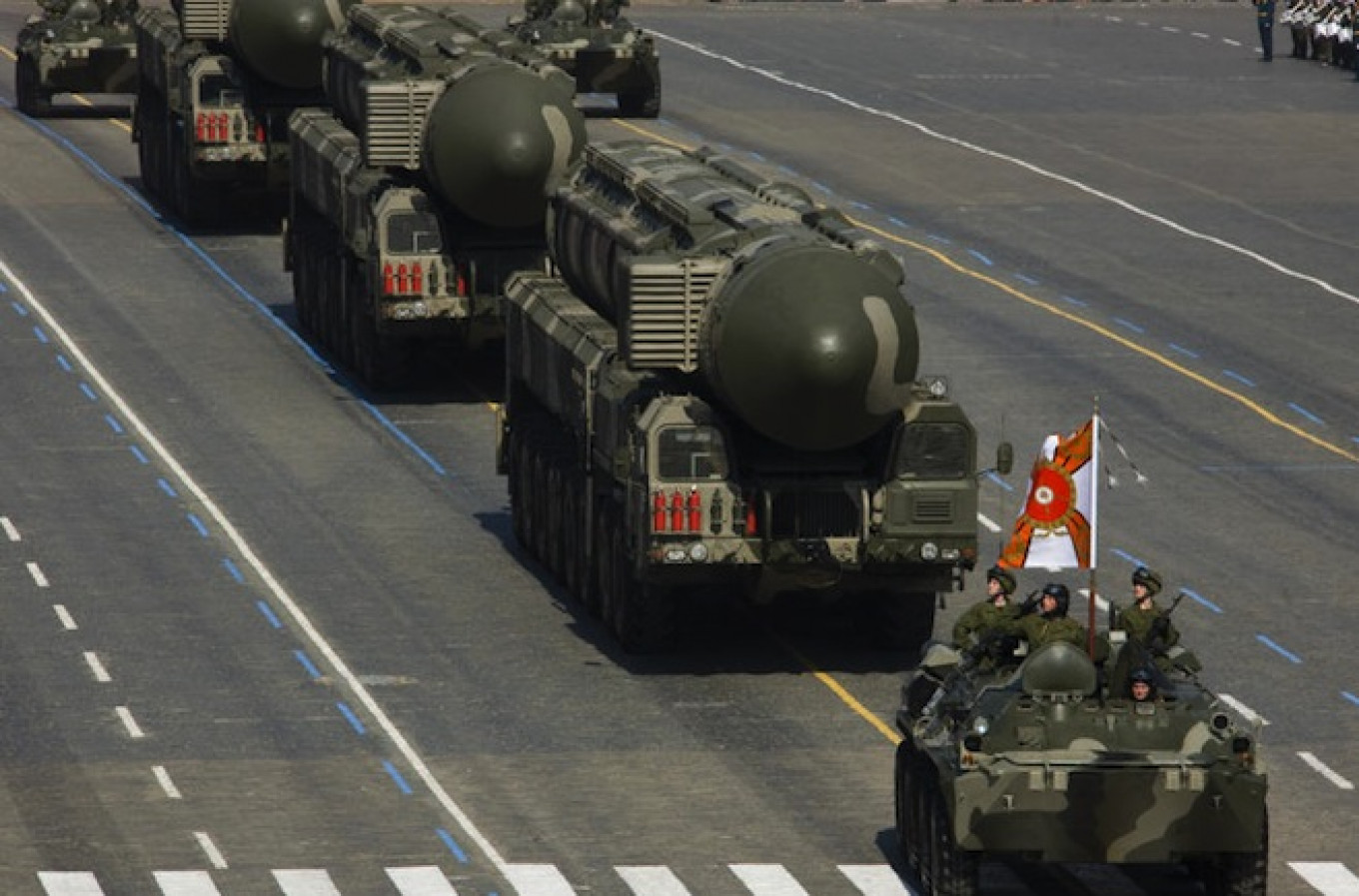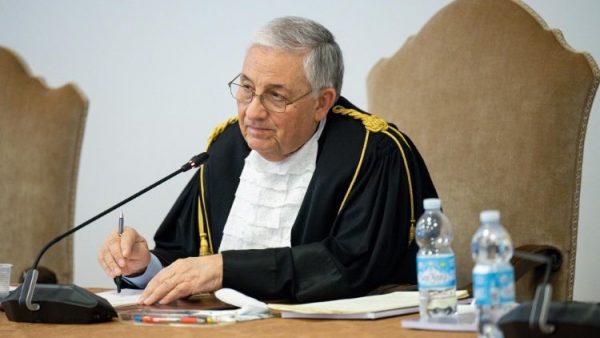Russia's Threat And The Escalation Of Global Military Spending

Table of Contents
Russia's Military Actions as a Catalyst for Increased Spending
Russia's military actions, particularly its invasion of Ukraine, have acted as a powerful catalyst for increased global defense budgets. The ramifications extend far beyond the immediate conflict zone, triggering a ripple effect across the globe.
The Ukraine Conflict and its Global Implications
The war in Ukraine has had a direct and profound impact on global defense spending. The conflict has spurred significant increases in NATO military budgets and prompted countries bordering Russia to bolster their own defenses.
- Increased NATO Spending: NATO members, particularly those in Eastern Europe, have significantly increased their military budgets. Examples include:
- Poland's substantial increase in defense spending, allocating a significant portion of its GDP to military modernization.
- Germany's commitment to exceeding the 2% GDP target for defense spending, a historical shift in its defense policy.
- The UK's increased investment in defense capabilities, including naval and air power.
- Increased Spending by Neighboring Countries: Countries geographically closer to Russia, fearing potential aggression, have also experienced a sharp rise in defense spending.
- Finland and Sweden, recently admitted to NATO, have dramatically increased their military budgets and defense capabilities.
- The Baltic states (Estonia, Latvia, and Lithuania) have consistently maintained high levels of defense spending relative to their GDP.
- Economic Strain: This surge in military spending, while necessary for some, places a significant economic strain on many nations, diverting resources from crucial social programs and potentially hindering economic growth.
Russia's Assertiveness in Eastern Europe and Beyond
Russia's assertive military posturing extends beyond Ukraine, encompassing regions such as Syria and the Arctic. These actions contribute to a global perception of heightened threat, further driving up military expenditures worldwide.
- Russian Military Activities: Russia's military presence in Syria, its activities in the Arctic, and its support for various proxy groups across the globe are perceived as destabilizing factors.
- International Perception: These actions are widely viewed by many countries as aggressive and expansionist, leading to heightened security concerns and prompting increased defense spending.
- Responses to Actions Outside Ukraine: Countries in regions where Russia has increased its military activity, such as those in the Middle East and the Arctic, have responded by boosting their own defense budgets and strengthening their alliances.
The Global Arms Race and its Economic Consequences
The increased military spending has fueled a global arms race, leading to a surge in demand for advanced weaponry and military technology, significantly impacting the global arms trade.
Increased Demand for Weapons and Military Technology
The demand for cutting-edge military technology has skyrocketed, benefiting major arms manufacturers and driving innovation in the defense sector.
- Growth in the Global Arms Trade: The global arms trade has seen substantial growth, with significant increases in the sale and procurement of advanced weapons systems.
- Increased Weapons Procurement: Many countries have accelerated their weapons procurement programs, seeking to enhance their military capabilities in response to perceived threats.
- Development of New Military Technologies: The arms race is spurring rapid advancements in military technology, including the development of hypersonic weapons, advanced drones, and artificial intelligence-driven defense systems.
Economic Implications of Military Spending
The massive investment in defense has significant economic implications, diverting resources away from social programs and sustainable economic development.
- Statistical Data: Global military expenditure now accounts for a significant percentage of global GDP, highlighting the substantial resources allocated to defense.
- Impact on Social Programs: The increased military spending often comes at the expense of crucial social programs such as healthcare, education, and infrastructure development.
- Long-Term Economic Effects: Sustained high military spending can hinder long-term economic growth by diverting investment from more productive sectors of the economy.
Geopolitical Shifts and the New Landscape of Global Security
Russia's actions have significantly reshaped the geopolitical landscape, altering alliances and prompting a reassessment of global security priorities.
The Changing Nature of Warfare
Modern warfare has evolved beyond traditional conflict, encompassing cyber warfare and sophisticated information operations.
- Cyber Security: The increasing importance of cyber security is reflected in the growing military spending allocated to protecting national infrastructure and critical systems from cyber attacks.
- Cyber Attacks and National Security: Cyber attacks, whether state-sponsored or by non-state actors, pose significant threats to national security and are driving increased investment in cyber defense capabilities.
- Information Warfare: Information warfare plays a critical role in shaping public perception and influencing geopolitical dynamics, further complicating the security landscape.
The Realignment of Alliances and Shifting Power Dynamics
Russia's actions have triggered shifts in global alliances and power dynamics, leading to a more complex and potentially volatile international environment.
- Shifting Alliances: The realignment of alliances is evident in NATO's expansion and the strengthening of partnerships between countries concerned about Russian aggression.
- Impact on International Relations: Russia's actions have significantly impacted international relations, increasing tensions and hindering diplomatic efforts to resolve conflicts.
- Future Geopolitical Outlook: The future geopolitical outlook remains uncertain, but the current trend suggests a continuation of heightened military spending and potential for further instability.
Conclusion: Russia's Threat and the Escalation of Global Military Spending – A Call to Action
The strong correlation between Russia's aggressive actions and the surge in global military spending is undeniable. The economic and social costs associated with this escalation are substantial, diverting resources from crucial areas of development. Reducing global military spending driven by Russia's threat requires a concerted international effort towards de-escalation and diplomatic solutions. We must remain informed about geopolitical developments and advocate for peaceful resolutions to prevent further escalation and the devastating consequences of a prolonged arms race. Understanding the implications of Russia's threat on global military spending is not just crucial, it’s a responsibility for securing a safer and more prosperous future. Let's work together to foster dialogue and find peaceful pathways to reduce global military spending and promote international stability.

Featured Posts
-
 French Army Receives First Serval Armored Vehicles
Apr 30, 2025
French Army Receives First Serval Armored Vehicles
Apr 30, 2025 -
 Youth Unrest Challenges Germanys Spd Coalition Talks
Apr 30, 2025
Youth Unrest Challenges Germanys Spd Coalition Talks
Apr 30, 2025 -
 Processo Becciu Aggiornamenti Sull Appello Del 22 Settembre
Apr 30, 2025
Processo Becciu Aggiornamenti Sull Appello Del 22 Settembre
Apr 30, 2025 -
 Eskisehir De Tip Oegrencileri Stres Atmak Icin Boks Yapiyor
Apr 30, 2025
Eskisehir De Tip Oegrencileri Stres Atmak Icin Boks Yapiyor
Apr 30, 2025 -
 Document Amf Remy Cointreau Cp 2025 E1029253 Points Cles
Apr 30, 2025
Document Amf Remy Cointreau Cp 2025 E1029253 Points Cles
Apr 30, 2025
